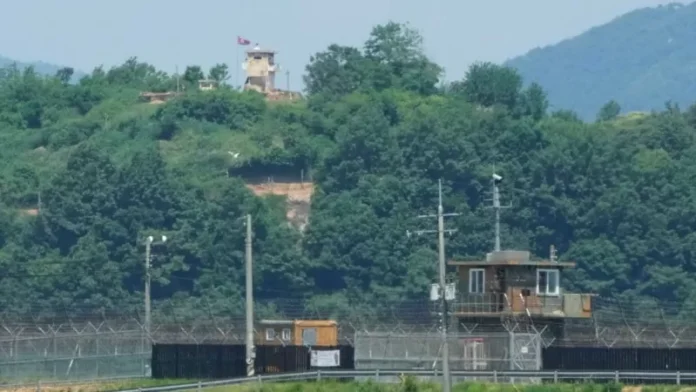UNITED NATIONS – The world watched as tensions rose in northeast Asia during an emergency meeting of the U.N. Security Council on Friday. The meeting was called to address North Korea’s recent satellite and ballistic missile launches, as well as their threats to use nuclear weapons. The United States, along with allies South Korea and Japan, clashed with China and Russia in an attempt to find a solution to this escalating crisis.
The meeting was called in response to North Korea’s failed launch of a military reconnaissance satellite on May 27th, which is just one of over 100 missile launches the country has carried out using banned technology. In addition, the U.S. and its allies have increased their military exercises in response to North Korea’s advancing nuclear weapons program.
During the meeting, U.N. Assistant Secretary-General Khaled Khiari stressed that while sovereign states have the right to peaceful space activities, the DPRK is in violation of U.N. sanctions by using ballistic missile technology in their launches. This not only undermines global nuclear disarmament and non-proliferation treaties, but also adds to the growing tensions on the Korean Peninsula.
U.N. Ambassador Kim Song of North Korea defended their satellite launches as a legitimate and universal right of a sovereign state according to international law. He argued that these launches are necessary for both strengthening their self-defense capabilities and defending their sovereignty. However, U.N. Ambassador Joonkook Hwang of South Korea countered this argument by stating that it should be his country – not North Korea – that has the right to self-defense.
Hwang also expressed concern over the recent change in North Korea’s attitude towards their nuclear arsenal, stating, “Pyongyang no longer views its nuclear arsenal as just a deterrent against the United States, but instead as a means to attack my country.” This change in rhetoric was further solidified by Kim Jong Un’s sister, Kim Yo-jong, who stated that the sole purpose of their tactical nuclear weapons is to “teach a lesson” to South Korea.
In response to these escalations, the U.S. Deputy Ambassador Robert Wood called on the Security Council to condemn North Korea’s launches and hold them accountable for violating U.N. sanctions. However, this has proved difficult as China and Russia, two members of the council, continuously block any attempts to speak out against North Korea’s actions.
Wood also addressed the DPRK’s unlawful transfer of ballistic missiles and munitions to Russia, which has only prolonged the suffering of the Ukrainian people. He rejected North Korea’s claims that their missile launches are a response to U.S.-led military exercises, calling these claims “groundless” and “disingenuous.”
Russia’s U.N. Ambassador Anna Evstigneeva, on the other hand, placed the blame on the U.S. and its allies for the growing tensions in the region. She claimed that “the unstable situation around the Korean Peninsula is of benefit to Washington, which continues to confidently and deliberately pursue the path of confrontation instead of dialogue.” She also dismissed claims of illegal military cooperation between Russia and North Korea as “absolutely unfounded.”
China’s U.N. Ambassador Fu Cong also called for restraint from all parties involved and warned against any actions or rhetoric that may increase tension. He specifically cited a planned joint military exercise between the U.S. and South Korea in August, which he claims is “practicing a scenario involving a nuclear war.”
However, Wood countered this argument by stating, “the United States is in no way a threat to North Korea.” He emphasized that the U.S. has continuously offered to hold talks with North Korea without preconditions, but these offers have been met with hostility and a lack of willingness to engage in dialogue.
The tension between the U.S. and its allies versus China and Russia in finding a solution to the North Korean crisis has proven to be a difficult one. However, it is imperative that all parties involved come together to find a peaceful resolution. The consequences of inaction are too great, and the safety and security of the region and the world are at stake.
In light of this urgent matter, the United Nations must take decisive action to de-escalate the situation on the Korean Peninsula. It is the responsibility of all nations to uphold international law and strive for peace and stability. The world looks to the U.N. to lead the way in resolving conflicts such as this, and it is our hope that this emergency meeting serves as a stepping stone towards finding a

